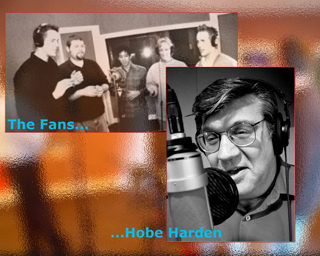 I’m a diehard Red Sox fan. Yeah, I know, is there any other kind? Anyway, as someone who grew up going to baseball games at Fenway Park in Boston, I remember what it was like to squeeze through those aging turnstiles and get caught up in the über-buzz of a game besotted with passionate fans, played in an open air ballpark on a sun streaked Saturday afternoon in June – even though, at that time, we had no pitching, no defense, and no chance of catching the Yankees or Blue Jays.
I’m a diehard Red Sox fan. Yeah, I know, is there any other kind? Anyway, as someone who grew up going to baseball games at Fenway Park in Boston, I remember what it was like to squeeze through those aging turnstiles and get caught up in the über-buzz of a game besotted with passionate fans, played in an open air ballpark on a sun streaked Saturday afternoon in June – even though, at that time, we had no pitching, no defense, and no chance of catching the Yankees or Blue Jays.
(Or, for that matter, anybody else for whom Roger Clemens might have been pitching.) Thank God the Sox won the Series in ’04 or I’d still be haunted by those insidious chants of “1918” that used to fill my ears every autumn since I was a kid.
2005 was a big deal for hardball fans in a different Northeastern city, Washington D.C., as it marked the ecstatic return of baseball to that town after a 34 year absence. (Democrats can only claim that it feels that long for them.) This is a city with a star-crossed and checkered past when it comes to baseball. How else to describe this age old comment from sportswriter Charles Dryden –
“Washington… first in war, first in peace and last in the American League.”
Or this gem from the Baseball Almanac –
It’s easy to see why Washington baseball fans are a confused lot.Their original team, called the Washington Senators, played in the National League until 1899. Then they became an American League team in 1901, called by the new ownership the Nationals so as not to have them confused with the old Senators. But fans kept calling them the Senators, while the team kept calling itself the Nationals, and everybody else nicknamed the team the “NATS” although nobody was sure whether that was short for NATionals or SeNATors and it wasn’t until 50 years later that the team began officially calling itself what the fans had been calling it all along. Then to top it off, the team moved to Minnesota to become the Twins, but a new franchise stayed in Washington called the Senators, until that franchise moved to Texas to become the Rangers and was replaced by another new Washington team called the Nationals. Got all that?.
The current iteration of the team is doing whatever it can to avoid the pitfalls of its predecessors. Last year, in their first season, they actually competed for a while before finishing at .500, a ballpark design is in the works (one drawing here,flash vid here), and fan interest is higher than the new national debt ceiling.
OLSON, The Minneapolis advertising agency that’s working with The Nats came in the other week to create a new radio ad campaign for the team. Derek Bitter, the writer, was hoping to create the effect you might get if you were at the park and, over the course of a game, you were permitted to move through the crowd and around the stadium with a microphone to capture the reactions, calls, cheers, boos, etc. In a nutshell – allowing the experience of being at the game, to speak for the game itself.
Cool concept.
In trying to bring this all about, we realized that, although we have plenty of baseball sound effects on hand, there were very specific reactions, cheers and backgrounds that would need to be created to really fill out the scene and tell the story. Now we could’ve just jammed everybody on hand into the voice-over booth and created an aural wad of stuff that may or may not have been useful to the mix. Problem is, you cram a lot of people in a small voice-over booth and, not matter how good that booth is, it sounds like a small cluster of tightly grouped people due to the size of the room. Unavoidable. So we took a different approach – we jammed them all into a larger space with live walls, spread ’em out, recorded them using a classic mid-side (M/S) technique, and then put them in synchronous layers like so many carpets in an Oriental rug shop. This effect really opened things up in the mix and allowed it to breathe. Sounded real too.
 ‘Course, now we had the to put the final voice-over into the mix. The VO had to match the mood, feel and essence of what Major League Baseball represents and mesh with all the sound-design we had done. The voice needed a texture that conveyed the heritage of the game with a warmth that could feel like a day at the diamond. Vin Scully would’ve been great but, y’know, he already works for the Dodgers and, I’m guessing his price probably would’ve freaked out the accountant. Which, by a deliberate turn of phrase, brings us to the great story of Hobe Harden, the “accidental voice-over tourist” in this whole radio spot. Listen to his first take.
‘Course, now we had the to put the final voice-over into the mix. The VO had to match the mood, feel and essence of what Major League Baseball represents and mesh with all the sound-design we had done. The voice needed a texture that conveyed the heritage of the game with a warmth that could feel like a day at the diamond. Vin Scully would’ve been great but, y’know, he already works for the Dodgers and, I’m guessing his price probably would’ve freaked out the accountant. Which, by a deliberate turn of phrase, brings us to the great story of Hobe Harden, the “accidental voice-over tourist” in this whole radio spot. Listen to his first take.
Talk about having some power sitting on the bench for the late innings!? – And is “Hobe” not like the most perfect baseball name? Couldn’t write a better scenario – other than the Sox taking the Yanks in seven during the ’04 ALCS – That, was perfect.
Here’s “Ballpark Noises”for the Washington Nationals.
Hobe Harden can be booked through his Minneapolis vloice-over agent, N.U.T.S.
